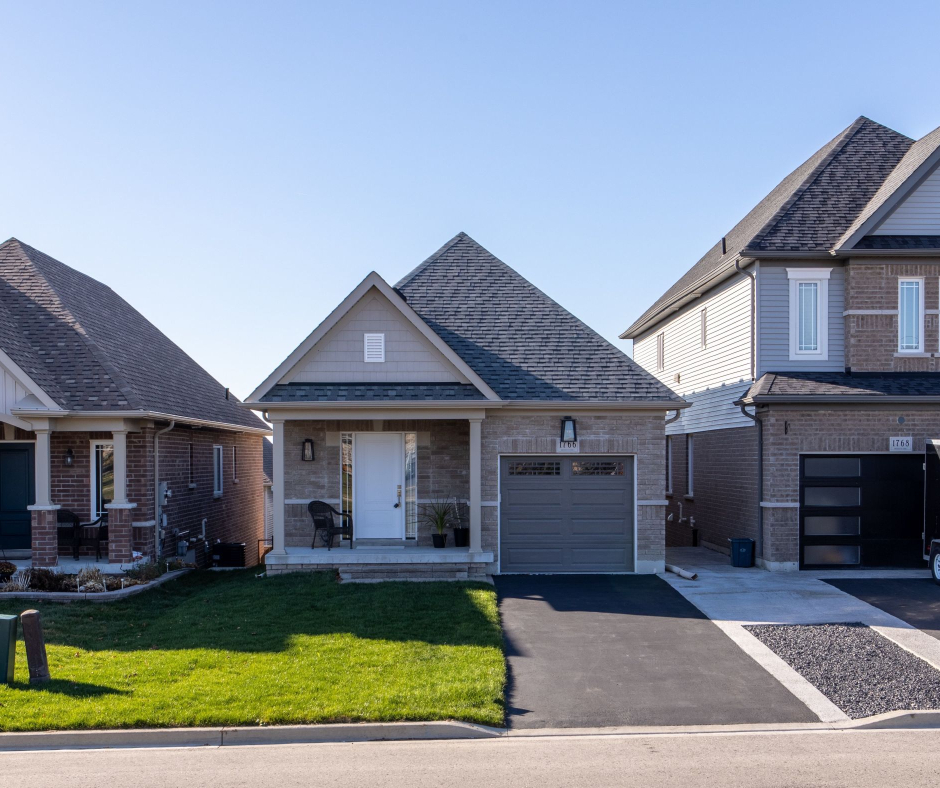HUD Cash-Out Refinance Guidelines on FHA Loans
This guide covers HUD cash-out refinance guidelines on FHA loans. The economy is on fire after Donald J. Trump took office.
- Unemployment numbers are in the 3.0% mark
- This has been a historical low in unemployment numbers in U.S. History
- Most homeowners with underwater mortgages are no longer upside down
- They have equity in their homes
- Homeowners are enjoying a nice ride with rising home prices
- The FHFA has raised conforming loan limits for many years in a row due to escalating home prices
- HUD followed FHFA and raised FHA Loan Limits for many years in a row
- Despite the highest mortgage interest rates since the 2008 Housing Bubble and Credit Collapse, there are no signs of a housing correction
- Housing demand remains strong in all parts of the United States
- There are no signs of any slowdown
- Home Builders are enjoying record sales year after year
- With home values the highest it has been, homeowners can benefit from FHA Cash-Out Refinance
HUD cash-out refinance guidelines allow homeowners to do an 80% LTV cash-out refinance mortgage.
HUD Cash-Out Refinance Guidelines And Its Benefits
Homeowners with equity in their homes can qualify for FHA Cash-Out Refinancing. Many homeowners do not realize the extent of how much their homes have appreciated over the past few years. Under HUD Cash-Out Refinance Guidelines, homeowners can qualify for 85% LTV Cash-Out Refinance FHA Loans. The new FHA Loan will pay the outstanding loan balance, and the leftover proceeds go to the borrower. Borrowers can use the excess proceeds for any purpose.
Proceeds From Cash-Out Refinance Is Non-Taxable And Can Be Used For Any Purposes
They can use it for the following:
- Pay off existing high-interest credit card debt
- Pay off their high monthly payment car loans
- Home improvement
- College education for their kids and/or grandchildren
- Vacation
- Purchase a second home and/or investment property
- Pay off a second mortgage
- Any other purpose
- Most credit cards have an average APR of 18%
- Americans have revolving credit balances of $1.04 trillion, which are making credit card companies mega-rich
- The American Bankers Association claims that 44% of credit card account is not paid by consumers every month
Homeowners with equity in their homes should explore doing a cash-out refinance and paying existing high-interest debts. Mortgage interest is tax-deductible where credit card interest is not.
Need extra cash for debt consolidation, home improvements, or life expenses?
Apply Now And Get recommendations From Loan Experts
Lowering Monthly Payments
Paying higher interest debts like credit cards and/or auto loan debt can greatly reduce overall monthly payments by consumers.
- Just going over the numbers with a loan officer on consolidating debts with a cash-out refinance often amazes borrowers
- With the combination of lower monthly payments and the benefits of mortgage interest deduction, homeowners can save tens of thousands of dollars over the term of their home loan
- Every situation is different and unique and savings will vary because there are many variable factors
HUD Cash-Out Mortgage Guidelines For Homeowners
The first step is to find out how much your home is worth.
- Can cash out up to 80% LTV of the appraised value of your property
- New FHA loan would be 80% LTV of the appraised value plus FHA upfront mortgage insurance premium (MIP)
- HUD requires that cash-out refinances is for owner-occupant borrowers only
- One to four-unit properties qualify
- Need to meet all HUD Mortgage Guidelines
Qualify For FHA Cash-Out Refinance With National Lender With No Overlays
Borrowers who have an interest in qualifying for an FHA cash-out refinance with a lender with no overlays on FHA loans can contact us at Mortgage Lenders for Bad Credit at 800-900-8569 or text us for a faster response. Or email us at gcho@gustancho.com. The team at Mortgage Lenders for Bad Credit is available 7 days a week, evenings, weekends, and holidays.
This blog on HUD Cash-Out Refinance Guidelines was published on March 20, 2025.
FAQ’s on HUD Cash-Out Refinance Guidelines on FHA Loans
Here are the FAQs concerning HUD guidelines for cash-out refinance on FHA loans:
What is cash-out refinance?
- With cash-out refinance, a borrower can pay off their current mortgage with a new one of greater value, pocketing the difference. This is usually done to access equity from the home.
Who qualifies for a FHA cash-out refinance?
All borrowers must fulfill certain requirements to be eligible. These include:
- Minimum credit score as outlined below (580 for maximum equity loan).
- Debt-to-income ratio that meets FHA requirements.
- Proof of employment and income.
What is an FHA cash-out refinance couple’s maximum loan-to-value (LTV) ratio?
- Usually, the maximum LTV ratio is 80%. This implies that an individual can refinance their loan to up to 80 percent of the value of their home.
What are the minimum credit score criteria?
- Generally, a borrower seeking a cashout refinance will need a minimum credit score of 580.
- However, some lending institutions have more stringent rules.
What types of properties qualify for an FHA cash-out refinance?
These properties qualify:
- Condominiums that FHA approves.
- Single-family residences.
- Multi-family dwellings (up to four units).
How much cash can I receive from a cash-out refinance?
- The amount of cash you can draw is determined by the equity in your home and the LTV ratio.
- For instance, if your house is worth $300,000 and you’ve got a mortgage of $200,000 on it, then you will most likely be able to draw close to $40,000 in cash.
Are there any specific documentation requirements?
- Indeed, there are. The borrowers must submit proof of income, such as pay stubs or W-2s. Bank statements, credit history, property appraisal, and, in some cases, within the case the borrower undergoes, a retinue of other documents can also make a case.
How long does the process take?
- An FHA cash-out refinance will take thirty to forty-five days from the application to closing.
- The lender determines the exact period and the specific conditions surrounding it.
Are there any fees associated with a cash-out refinance?
- A cash-out refinance does come with some closing costs, such as appraisal fees, title insurance, and underwriting fees. Generally speaking, these additional costs tend to be included in the new loan amount.
For what purposes can the cash from a refinance be used?
- Withdrawal funds can be spent on various things, such as debts, education, personal necessities, and even home improvements.
If I have an existing FHA loan, what happens next?
- You can still do a cash-out refinance even if you currently have an FHA loan. Still, regardless, you must satisfy all eligibility criteria.
Is there any flexibility regarding using funds from a cash-out refinance?
- If you are a cash-out, you don’t specifically need to explain how you are going to use the money. Still, at almost any time, you must give at least one explanation to your lender.
After foreclosure, does a waiting period apply?
- Yes, always keep in mind that there are waiting times:
- Bankruptcy: 2 years after Chapter 7, 1 year after 13 with court approval.
- Foreclosure: 3 years from the date of the foreclosure sale.
Am I able to refinance while in forbearance?
A forbearance will likely hinder one’s ability to qualify for the refinance, so it is best to speak to a lender first. Working alongside an FHA specialist or financial consultant would be the best decision to ensure you get the most relevant and nuanced information on this subject.
Lower Rates Compared to Personal Loans or Credit Cards
Apply Now And Get recommendations From Loan Experts



